Resources
The present study sought to investigate the perceptions of 300 ministers, 85 recent graduates from theological colleges, and 954 church members regarding (a) the effectiveness of ministry education, (b) priorities for ministry education, and (c) the acquired competencies of ministers. Participants were surveyed using the Inventory of Ministry Education Perceptions and Priorities (IMEPP), which displayed good validity and reliability in the study. Results of the study indicate that participants were largely satisfied with the effectiveness of ministry education and the acquired competence of ministers. However, on the whole, ministers and recent graduates were less satisfied with their ministry education and acquired competence than were church members. The study also identified significant differences between ministers, recent graduates and church members with regard to the priorities they perceived theological colleges should pursue.

This book emerges from the Carnegie Foundation for the Advancement of Teachings study of the most pressing concerns involved in preparation of clergy across all faiths and denominations. Working with accrediting bodies and professional associations as well as the educational institutions themselves, the findings reported in this book can be used to improve the quality of education for future ministers, priests and rabbis. (From the Publisher)
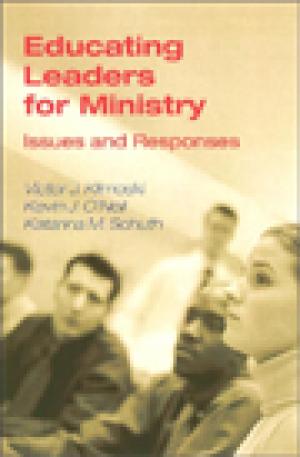
Educating Leaders for Ministry names four overarching challenges that students, faculty, and administrators face in theological education: theological differences, learning differences, integration, and assessment. The six-year program, known popularly as the Keystone Conferences (1996-2001), tapped the experience of nearly 150 educators and administrators as it identified and proposed responses to the particularly problematic issues that surface in the teaching and learning endeavor in Roman Catholic theological education in the United States. (From the Publisher)

Contemporary theological education is facing profound changes. Fundamental shifts in both church and society have established a volatile context for theological teaching and learning. Seminaries are struggling with the growing diversity of their students, faculties, and institutional commitments. This book addresses these issues both contextually and historically, engages the nature of theological teaching and learning, and offers educational practices that strengthen the vocation of teaching and enhance the school as a place of conversation. (From the Publisher)
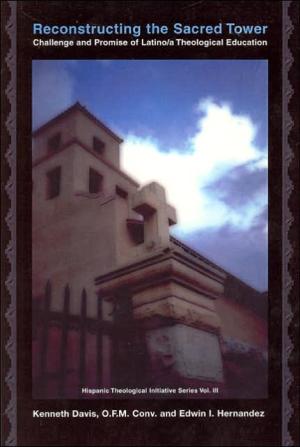
The Hispanic community in the United States is growing by leaps and bounds. The most important institution in Hispanic barrios is the church. Government programs come and go, but the churches remain. So what could be more important than good Hispanic theological leadership? This book is unblinking about the problems involved. Lacking are financial and intellectual resources in otherwise excellent seminaries and other educational institutions. At the same time the book offers a vision of hope. It uses solid data to describe the willingness of many young people to get involved in religious leadership. It shows their eagerness to learn and to serve. The book concludes with a number of well examined and down to earth recommendations. (From the Publisher)
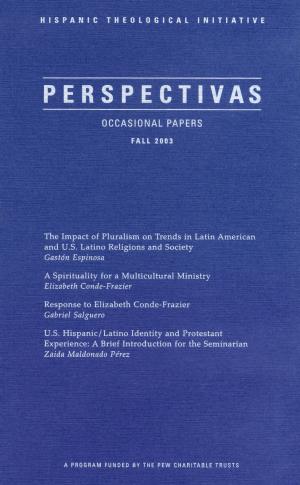
Journal Issue.

A Many Colored Kingdom explores Christian formation and teaching in the church, with a particular focus on intercultural and interethnic relationships. Well qualified to speak on issues of diversity, the authors describe relevant aspects of their own personal journeys, presented in compelling narrative form. They go on to identify key issues emerging from their Scripture studies and teaching experiences. A final chapter contains a conversation among the authors as they respond to one another's insights and concerns. This book will be required reading for those engaged in as well as those preparing for a life of teaching and ministry in our increasingly multicultural world. (From the Publisher)
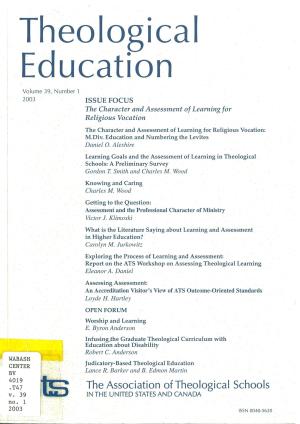
Journal Issue. Full text is available online.
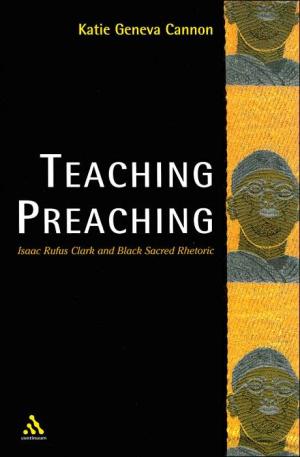
In Teaching Preaching, Katie Cannon, one of Clark's myriad preaching proteges, conceives her role as purely "presentational": "to bring Clark face to face with a reading audience, allow him to explain the formal elements of preaching from the inside out, and let each lecture mediate its own message." She also allows Clark to speak in his own expressive vernacular, with its double negatives, deliberate redundancy, signifying wordplay, and colloquially coined cussedness. While Clark lucidly explicates all the elements of sermon preparation and delivery, he never tires of stressing the development of a "theoethical consciousness": "a transformative vision that focuses on Jesus as the chief cornerstone of the preaching person as well as of the preaching subject." This book will be an invaluable resource for ministers who struggle from Sunday to Sunday to find their ethical voice in the preparation of each and every sermon. (From the Publisher)